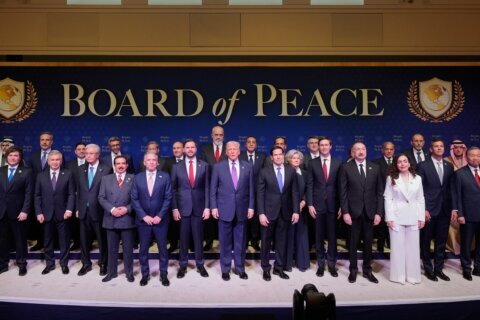The Restaurant Association of Metropolitan Washington (RAMW) recently surveyed restaurant owners and the responses weren’t good.
Even with pandemic constraints largely in the review mirror, 64% of restaurant operators in D.C. said economic conditions for their industry are poor, and two-thirds expect conditions to stay the same or get worse in the coming year.
On the surface, the D.C. restaurant business appears to have found a footing. Restaurant sales tax collections are back to pre-pandemic levels.
“The two don’t necessarily go together all of the time. Just because you see more sales tax coming in from restaurants does not mean they are pocketing more money. They are paying more money to operate,” Shawn Townsend, president and CEO of RAMW, said.
In its survey, which included responses from more than 200 restaurant operators (most of which are in D.C.), 87% said they were paying more for payroll, 70% said they were paying more for ingredients, and 53% said they were paying more in rent than a year ago. Three-quarters said they expected costs to continue to climb this year.
Many restaurants have raised prices and tacked on often confusing service fees but raising prices further risks turning diners away. More than four out of five restaurant operators said they were extremely or moderately concerned about diners’ willingness to pay higher prices, and 34% already expect customer traffic to decline this year.
The RAMW is advocating for changes to lower costs, both for restaurant operators and diners. Among its pushes is addressing D.C.’s 4% meals tax. D.C.’s meals tax is in addition to the 6% sales tax added to diners’ bills.
“We want to be competitive with other large cities across the country. In Miami, it is 2%. New York and Los Angeles do not have a meals tax. We have more Michelin-starred restaurants than we’ve ever had. We want to be able to attract more visitors to the city,” Townsend said.
Nationwide, 35 of the 50 largest U.S. cities have no meal tax at all. In the D.C. area, Alexandria has the highest meals tax, at 5%, while it is 4% in Arlington. There is no meals tax in Fairfax, Montgomery or Prince George’s counties.
The RAMW is urging the D.C. Council to cut red tape for restaurant operators. In 2022, the council passed the Business and Entrepreneurship Support to Thrive Act, or BEST, which lowers fees, simplifies several processes and reforms a system of late fines that can exceed the cost of a business license. However, the law remains unfunded.
“Mayor Bowser has shown her support for the BEST Act by allocating its funds in her proposed budget. We urge the council to follow suit and ensure this law fully takes effect by including it in the final budget,” Townsend said.
In the survey, 53% of restaurant operators said revenue increased from 2022 to 2023. But 31% said revenue dropped, and 41% said they’ve seen a decrease in customer traffic. Additionally, 82% said they were extremely or moderately concerned about violent crime, and 79% said they were concerned about the lack of workers on-site in their downtown offices.
Labor costs are a significant concern for restaurants, with 76% of owners saying they are extremely concerned about rising payroll costs. Two-thirds said they have reduced hours, laid off staff or stopped hiring over the last year. Between June 2023 and January 2024, D.C. restaurants lost 4,000 full-service restaurant jobs and quick-service restaurants have seen a loss of 900 jobs.
Get breaking news and daily headlines delivered to your email inbox by signing up here.
© 2024 WTOP. All Rights Reserved. This website is not intended for users located within the European Economic Area.








